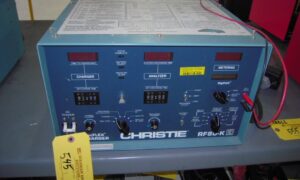You’re here because you want injection molding that actually performs.
And I’ve spent enough time in product development to know how hard it is to find a partner you can trust.
I’ve seen projects fall apart because of slow samples, weak communication, sloppy tooling, or pricing that changes halfway through.
That’s why I stay very selective with who I recommend.
When I evaluate a manufacturing partner, I look at speed, consistency, engineering support, tooling quality, and their track record across different industries. I also compare how they handle the details that most people overlook, like material guidance, QA systems, and maintenance.
This article walks you through how I judge injection molding services, why the right choice saves you time and stress, and why a company like EzraMade deserves attention if you want fast, precise, and reliable results. By the time you reach the end, you’ll know exactly what to look for and how these choices impact your final product.
Now let’s break it down.
Step 1: Look At Their Speed And Sample Workflow
Speed is the first thing I check.
Anyone can claim fast turnaround.
Very few can back it with proven timelines.
Ezra delivers T1 samples in 2 to 3 weeks and offers T1 injection molding samples in as little as 10 days, which is a major advantage if you’re pushing toward a tight launch or testing multiple iterations. Their engineering workflow also gives you rapid quoting and DFM guidance, something that saves you hours and keeps your project from drifting.
If you want a tighter look at their molding capabilities, their EzraMade injection molding services page lays out the full picture, including tooling options and process types.
A fast sample workflow helps you stay ahead without cutting corners.
Step 2: Check Their Process Capabilities
Injection molding comes in many forms.
If you pick a partner with limited processes, you limit your product before it even begins.
Here are the core molding processes I check for every time:
- Plastic injection molding
- Insert molding
- Overmolding
- Micro molding
- LSR molding
- Gas assist molding
Ezra covers every one of these, and that matters because you might need flexibility later.
Insert molding today.
LSR molding tomorrow.
Overmolding later as you refine ergonomics.
A partner with full capabilities keeps your entire project under one roof, which keeps your tooling consistent, your timelines predictable, and your costs lower.
Step 3: Evaluate Their Tooling Quality
Tooling quality is where most projects either succeed or fall apart.
I always look for:
- In house mold workshops
- Aluminum and steel tooling options
- Mold flow simulations
- Lifetime maintenance
- SPI surface standards
- ISO certified QA
Ezra checks all of these. Their tooling team supports both small batch bridge tooling and high volume hardened steel molds, which gives you room to scale without rebuilding everything each time.
A strong tooling foundation saves you money across the entire life of your product.
Step 4: Review Their Engineering And Support
You want a team that actually talks to you.
Clear engineering support is the difference between guessing and making confident decisions.
This is where Ezra stands out again. Their engineers provide direct help through chat, email, or phone, and they review your designs to make sure the mold will run cleanly before you invest in tooling.
I look for things like:
- Direct engineer communication
- DFM feedback
- Transparent pricing
- Material recommendations
- Risk analysis
- Mold flow considerations
If a company avoids technical conversations, that’s a red flag.
If they welcome them, you get a smoother project.
Step 5: Compare Their Track Record And Output Volume
Experience is one of the easiest ways to judge reliability.
Ezra has shipped more than 28 million parts, holds a 98.5 percent on time delivery rate, and maintains a strong Trustpilot rating. That combination tells you they’re consistent. It also tells you they can handle large runs without losing precision.
A long track record across consumer goods, medical devices, automotive components, electronics, and cosmetics also shows versatility. That matters because different industries demand different tolerances and material behaviors.
When a company performs well across all of them, you get predictable outcomes.
Step 6: Look At Their Secondary Services
A molding partner should handle more than molding.
I look for finishing, assembly, and additional processing because it reduces the number of vendors you need to manage.
Ezra offers:
- Heat staking
- Ultrasonic welding
- Laser engraving
- Full part assembly
- Custom finishes
- QA inspections
- Secure global packaging
This tight workflow helps you control quality from start to finish, especially if you’re building a multi component assembly or anything that needs added durability.
Step 7: Judge Their Ability To Scale
Your project may start small.
But if it grows, you need a partner that can grow with it.
Ezra handles prototyping, small batch runs, and high volume production. They also offer lifetime tooling maintenance, which keeps long term costs predictable.
I always lean toward partners who can scale like this because scaling is usually where businesses lose the most money. Having a team that plans for growth from day one builds stability into your production cycle.
Final Thoughts
If you want injection molding services that are fast, precise, and supported by strong engineering, Ezra is a solid choice based on their tooling quality, wide process range, and proven delivery record.
Take these steps, compare them to your own project needs, and you’ll place yourself in a stronger position no matter what you’re building.
And once you use these criteria, your decision process becomes a lot simpler.
You’ll know exactly who can deliver and who cannot.
Read More From Techbullion



































